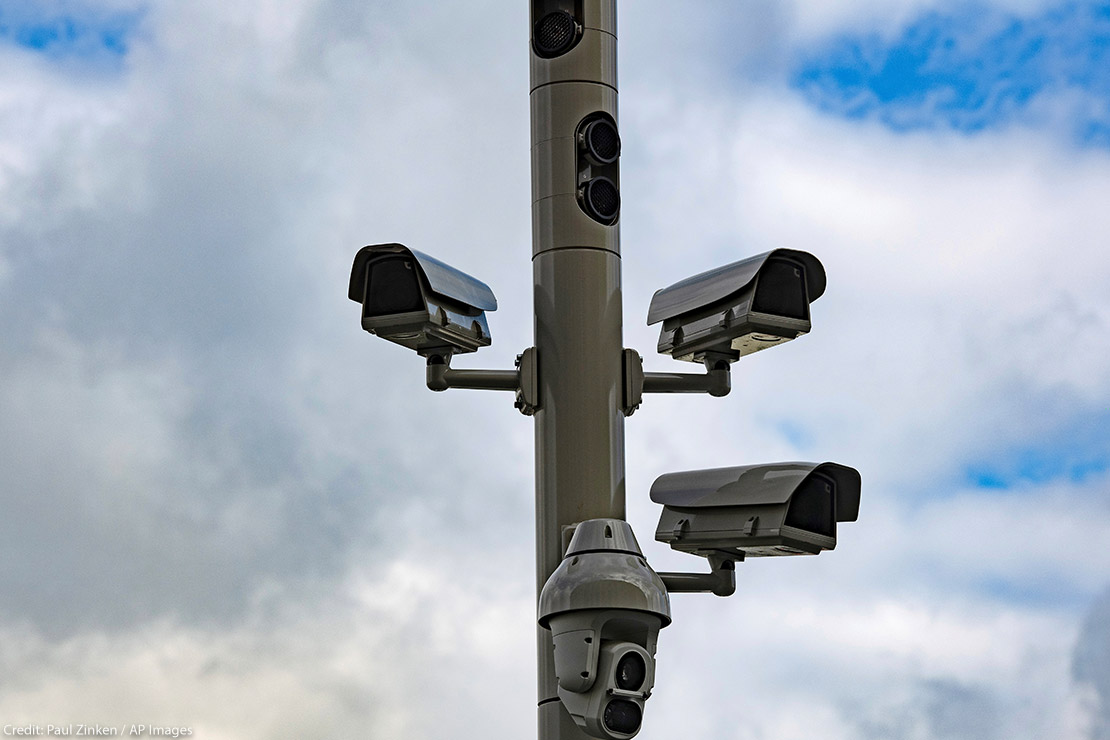
Moore v. United States
What's at Stake
On November 18, 2022, the ACLU and ACLU of Massachusetts, with the law firms of Thompson & Thompson, P.C. and Elkins, Auer, Rudof & Schiff, filed a petition asking the U.S. Supreme Court to take up the question whether long-term police use of a surveillance camera targeted at a person’s home is a Fourth Amendment search.
Summary
In the case, Moore v. United States, federal agents, without a warrant, surreptitiously installed a small surveillance camera near the top of a utility pole in a Springfield, Massachusetts neighborhood and used it to record the activities at and around a private home over an uninterrupted eight-month period. Agents could watch the camera’s feed in real time, and remotely pan, tilt, and zoom close enough to read license plates and see faces. They could also review a searchable, digitized record of this footage at their convenience. The camera captured every coming and going of the home’s residents and their guests over eight months, what they carried with them when they came and went, their activities in the home’s driveway and yard, and more.
Federal courts of appeals and state supreme courts are divided over whether long-term pole-camera surveillance of a person’s home impinges on reasonable expectations of privacy under the Fourth Amendment. In this case, the members of the full en banc U.S. Court of Appeals for the First Circuit split evenly on the question, with three judges explaining that a warrant is required, and three judges expressing the belief that the Fourth Amendment imposes no limit on this invasive surveillance.
The ACLU’s cert petition urges the Supreme Court to take up the question, and to make clear that under the Fourth Amendment, police need a warrant before using digital camera technology to surveil a home for a long period.
Update: On May 22, 2023, the Supreme Court denied our petition for a writ of certiorari.
Legal Documents
-
05/01/2023
Reply to Brief in Opposition -
04/14/2023
Government's Brief in Opposition to Petition for Writ of Certiorari -
Amicus Briefs in Support of Petition for Writ of Certiorari -
- Amicus Brief of Muslim Public Affairs Counsel in Support of Certiorari
- Amicus Brief of Media Organizations in Support of Certiorari
- Amicus Brief of the Institute for Justice in Support of Certiorari
- Amicus Brief of the Cato Institute in Support of Certiorari
Moore v. United StatesLegal DocumentsAmicus Brief of Muslim Public Affairs Counsel in Support of CertiorariDate Filed: 12/20/2022
Court: Supreme Court (U.S.)
Moore v. United StatesLegal DocumentsAmicus Brief of Media Organizations in Support of CertiorariDate Filed: 12/21/2022
Court: Supreme Court (U.S.)
Moore v. United StatesLegal DocumentsAmicus Brief of the Institute for Justice in Support of CertiorariDate Filed: 12/22/2022
Court: Supreme Court (U.S.)
Moore v. United StatesLegal DocumentsAmicus Brief of the Cato Institute in Support of CertiorariCourt: Supreme Court (U.S.)
-
11/18/2022
Petition for Writ of Certiorari
Date Filed: 05/01/2023
Court: Supreme Court (U.S.)
Date Filed: 04/14/2023
Court: Supreme Court (U.S.)
Date Filed: 11/18/2022
Court: Supreme Court (U.S.)
-
06/09/2022
En Banc Opinion -
02/11/2021
En Banc Brief of Amici Curiae ACLU, ACLU of MA, EFF, and CDT -
12/09/2020
Order Granting Rehearing En Banc -
06/16/2020
Panel Opinion
Date Filed: 06/09/2022
Court: Appeals Court (1st Cir.)
Date Filed: 02/11/2021
Court: Appeals Court (1st Cir.)
Date Filed: 12/09/2020
Court: Appeals Court (1st Cir.)
Date Filed: 06/16/2020
Court: Appeals Court (1st Cir.)
-
06/05/2019
Order Denying Gov't. Motion for Reconsideration -
06/04/2019
Amended Memorandum & Order Granting Defs.' Motion to Suppress -
05/06/2019
Government Opposition to Motion to Suppress -
04/22/2019
Moore's Motion to Suppress
Date Filed: 06/05/2019
Court: District Court (D. Mass.)
Date Filed: 06/04/2019
Court: District Court (D. Mass.)
Date Filed: 05/06/2019
Court: District Court (D. Mass.)
Date Filed: 04/22/2019
Court: District Court (D. Mass.)
Press Releases
U.S. Supreme Court Declines to Hear Challenge to Warrantless Pole Camera Surveillance
ACLU Urges U.S. Supreme Court to Hear Challenge to Warrantless Pole Camera Surveillance